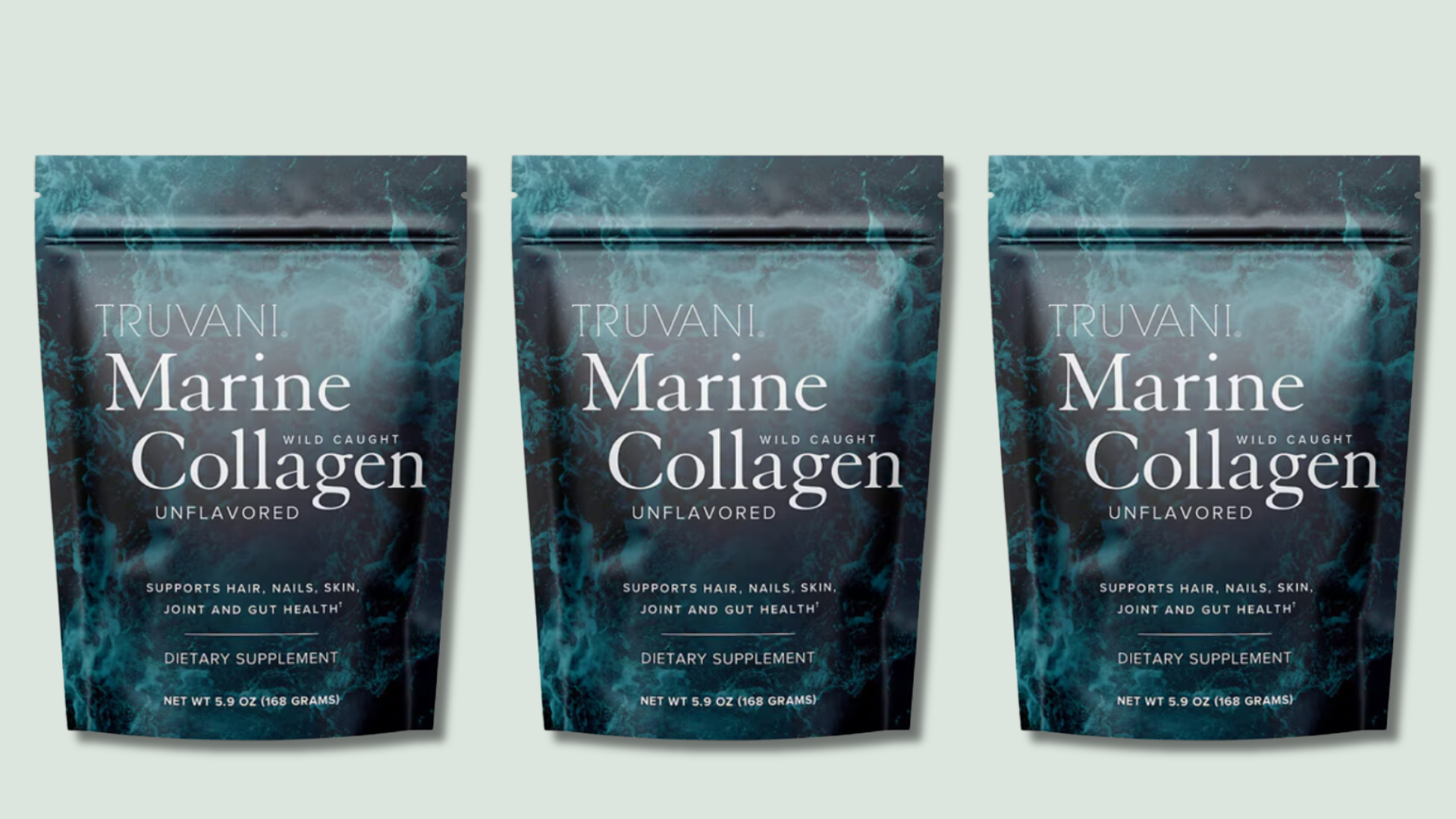Marine Collagen and Organic Beauty
Living in the “organic beauty” underworld and wondering what exactly “marine collagen” is? Then, I hope this will clarify your doubts! Collagen is the superstar protein of our bodies. It’s like the scaffolding that keeps everything in place and looking fabulous, from our skin to our bones.
Did you know that not all collagen is created equal? That’s right!
Marine Collagen. This variant of collagen, sourced from fish scales or skin, is like the secret VIP of the collagen club!
Collagen Vs. Marine Collagen: A Comparison
Think of collagen as the bricks and mortar of our body’s structure. It’s the most abundant protein in our bodies, it provides structure and elasticity to our skin, bones, tendons, and more. It’s like the invisible force field that keeps us looking young and feeling flexible.
Now, let’s chat about marine collagen. Imagine this: It’s a sunny day, and you’re out in the ocean. Suddenly, you find a treasure chest. And guess what’s inside? You got it, marine collagen!
Extracted from fish scales and skin, this type of collagen is rich in Type I collagen, the kind that’s fantastic for skin health.
The main difference between regular collagen and marine collagen lies in their sources and the types of collagen they’re rich in. Marine collagen is considered superior for rejuvenating skin due to its high concentration of Type I collagen and its bioavailability – which is just a fancy way of saying your body can use it more efficiently.
The Benefits of Marine Collagen Peptides
Marine collagen peptides are like the superheroes of the collagen world. They’re smaller, broken-down molecules of collagen that your body can easily absorb and use. It’s like being given a VIP fast-pass straight into the bloodstream!
And these tiny little heroes pack quite the punch. For your skin, they’re like a time machine, boosting hydration, elasticity, and reducing those pesky wrinkles. But their powers don’t stop there. They’re also fantastic for your joints and bones, acting like a lubricant for easier movement and providing the building blocks for bone matrix.
Marine Collagen: Is It The Best?
Well, isn’t that the million-dollar question! I’d say it’s like choosing between a great band and your favorite song by them. Each type of collagen – be it bovine, chicken, or marine – has its unique benefits and source.
However, marine collagen stands out as the lead vocalist for a couple of reasons. It’s rich in Type I collagen, it’s highly bioavailable, and it’s an excellent choice for pescatarians. But ultimately, the “best” collagen depends on your personal needs and preferences.

These are my favorites:
Truvani Marine collagen
Zen Principle
The Safety of Daily Marine Collagen Intake
Sure, marine collagen sounds amazing, but can you take it every day? In short, yes! It’s like eating fish – you can certainly enjoy it daily. However, like any good thing, moderation is key, and it’s always best to follow the recommended dosage on the product packaging.

Who Should and Shouldn’t Take Marine Collagen?
Marine collagen is great for anyone looking to boost their skin health, improve joint mobility, or generally supplement their collagen intake. But hold your horses if you have a fish allergy. Marine collagen, being sourced from fish, is a no-go for anyone allergic to seafood. Always remember to talk to your Dr. when in doubt!
Organic Marine Collagen: Can We Find It?
On the hunt for organic marine collagen? The journey can be a bit tricky. The term ‘organic’ often refers to plant-based items or livestock raised under specific conditions. Since collagen is derived from fish skin or scales, it doesn’t fall under typical ‘organic‘ criteria.
However, some companies ensure their marine collagen is sourced from wild-caught fish, free from harmful additives and contaminants. While it might not carry the ‘organic’ label, it’s still a great step towards pure, natural marine collagen.
The term “wild-caught” refers to fish that are caught in their natural habitats i.e oceans, rivers, or lakes, as opposed to fish raised in farms under very controlled conditions.
There’s a lot of debate about the virtues of wild-caught fish versus farmed fish. However, when it comes to sourcing marine collagen, there are several reasons why wild-caught fish might be considered a superior choice.
One key reason is the diet of wild fish. Wild fish eat a natural diet, consuming other small organisms found in their ecosystem. On the other hand, farmed fish are often fed processed fish feed, which can include antibiotics and other additives. So, wild fish often have a more diverse nutrient profile compared to their farmed counterparts.
Additionally, wild-caught fish often have lower levels of contaminants than farmed fish. Farmed fish are typically raised in crowded conditions, which can lead to disease and parasites. To combat this, farmers may use chemicals and antibiotics, which can accumulate in the fish. Wild fish are less likely to be exposed to these types of contaminants.
Let’s take the example of salmon, a common source of marine collagen. Wild-caught salmon, such as those from the pristine waters of Alaska, feed on a natural diet of smaller fish, krill, and other marine organisms. This diet not only gives their flesh a bright pink color but also makes it rich in omega-3 fatty acids and antioxidants.
Conversely, farmed salmon can be fed a diet of processed food, which might include chicken feathers, soy, genetically modified organisms (GMOs), and synthetic pigments to give them the same pink color that wild salmon have naturally. The confined conditions in which they’re raised can also lead to disease and stress in the fish.
In the context of marine collagen, this means that collagen derived from wild-caught fish might have a broader nutrient profile and fewer contaminants, making it a superior choice for those seeking a clean, natural source of collagen.
Companies that source their marine collagen from wild-caught fish, therefore, are more likely to offer a high-quality product, even if it cannot be labeled as ‘organic’ in the conventional sense.
Finally, marine collagen is a fascinating and beneficial part of the vast world of wellness. Like a trusted friend, it can support us in many ways, from boosting our skin health to assisting in bone and joint functionality.
Understanding marine collagen helps us make informed choices for our health and bodies. So, isn’t it time to dive deep into the benefits of marine collagen?
Frequently Asked Questions about Organic Beauty and Marine Collagen
How is marine collagen different from other types of collagen?
Marine collagen is sourced from fish, specifically their scales or skin, and it’s rich in Type I collagen, which is excellent for skin health.
Are there any side effects of marine collagen?
Generally, marine collagen is well-tolerated. However, anyone with a fish allergy should avoid it.
Can I find marine collagen in foods?
Fish, especially their skin, is a great source of marine collagen. Cooking it slowly can help release collagen.
How quickly can I see the benefits of marine collagen?
Everyone is different, but some people notice changes in their skin and joint health in a few weeks.
Is marine collagen vegan?
No, marine collagen is not vegan as it’s sourced from fish.







